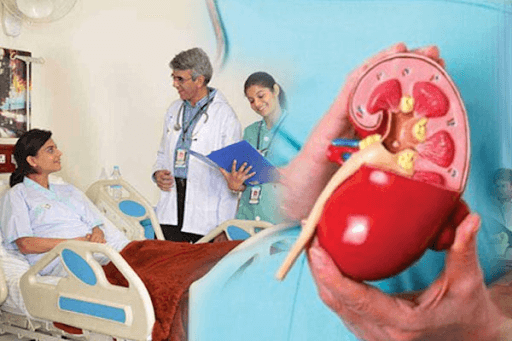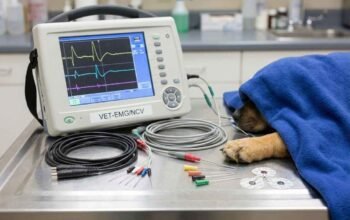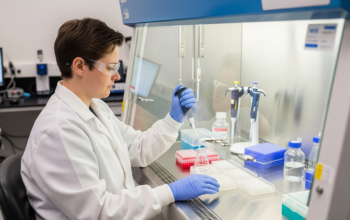A kidney transplant can be a crucial option for those experiencing severe kidney failure. It requires thorough preparation to ensure the best possible outcome. From medical evaluations to lifestyle changes, every step is important. Post-surgery care, including medication management and a healthy lifestyle, plays a vital role in recovery. Check out this post on how to prepare for kidney transplant surgery and understand the care required afterwards. Choosing the best hospital for kidney transplant in India, like Nanavati Max Super Speciality Hospital, can ensure expert care and a smoother recovery process.
Pre-Surgery Preparations
Getting ready for a kidney transplant involves more than just the surgery itself. It starts weeks or even months before the operation, with medical evaluations, lifestyle adjustments, and mental preparation.
Medical Tests and Evaluations
To ensure you’re ready for a kidney transplant, you must undergo various medical tests. These include blood tests, imaging scans, and heart assessments to confirm your eligibility for surgery. The goal is to check if your body can handle the procedure and to minimise risks during surgery. Doctors take extra precautions by evaluating the compatibility of the donor’s kidney and assessing any underlying health conditions that could affect your recovery.
Stopping Medications and Adjusting Lifestyle
Once your transplant is scheduled, your doctor will likely recommend stopping certain medications, especially blood thinners, to reduce the risk of bleeding during surgery. You’ll also need to make some lifestyle adjustments, such as avoiding smoking and alcohol as it may slow down recovery. A healthy diet is essential at this stage, too. Focus on foods supporting kidney health, such as fruits, vegetables, and lean proteins.
Mental Preparation
Surgery can be challenging and impact you mentally and physically. Preparing mentally is just as important as following your medical regimen. Talk to your healthcare provider about your concerns, and ensure you have a robust support system. Knowing that you are in the care of one of the best hospitals for kidney transplant in India, such as Nanavati Max Super Speciality Hospital, can offer peace of mind during this challenging time.
The Kidney Transplant Surgery Process
Now that you’re fully prepared, it’s time to focus on the surgery itself. A kidney transplant typically lasts 2-4 hours and is performed under general anaesthesia.
What Happens During Surgery?
During the procedure, the surgeon places the new kidney in the lower part of your abdomen. The donor kidney’s blood vessels are attached to yours, and its ureter (the tube that carries urine) is connected to your bladder. One interesting fact is that your own kidneys may not be removed unless they are causing problems, such as infection or high blood pressure.
In hospitals like Nanavati Max Super Speciality Hospital, the medical team closely monitors your vitals throughout the surgery to ensure everything goes smoothly. Their advanced medical facilities and experienced transplant surgeons ensure the highest standards of care. This is why it’s widely recognised as one of the best hospitals for kidney transplant in India.
Post-Surgery Care
Your care doesn’t end with the surgery. Post-surgery care is one of the most critical aspects of a successful kidney transplant. Proper post-op care can reduce the chances of complications and improve the overall function of your new kidney.
Hospital Recovery
After surgery, you’ll spend some time in the intensive care unit (ICU), where doctors will monitor you closely. They’ll check for signs of kidney rejection, infection, and other complications. Patients usually stay in the hospital for about 5-10 days. The team will also start you on medications to prevent rejection, called immunosuppressants, which you will need to take for the rest of your life.
Hospitals like Nanavati Max Super Speciality Hospital offer continuous monitoring, which is crucial in the early days of post-surgery. Their modern facilities ensure patients get round-the-clock care during this delicate phase.
At-Home Care
Once you are home, recovery continues. You’ll need to be diligent about taking your medications, attending follow-up appointments, and maintaining a healthy lifestyle. Your medical team will advise you on the following:
- Medication Management: Your immune system naturally wants to reject the new kidney, so it’s essential to take immunosuppressants regularly. Missing doses can lead to rejection of the transplanted kidney.
- Healthy Diet: A balanced diet that supports kidney health is key. You’ll need to limit salt, potassium, and phosphorus in your meals. It’s also important to drink plenty of water but within limits recommended by your doctor.
- Hygiene and Safety: Since you’ll be taking medications that suppress your immune system, avoiding infections is vital. Always wash your hands, wear a mask in crowded places, and avoid contact with anyone who is sick.
Physical Activity and Rest
You’ll need to take it easy for the first few weeks after surgery. Avoid lifting anything heavy or engaging in strenuous physical activities. Light activities such as walking are encouraged, as they can help speed up your recovery and improve circulation. Within six weeks, most people can return to their regular activities. However, listen to your body and consult with your doctor before resuming any exercise or work. Leading hospitals like Nanavati Max Super Speciality Hospital have dedicated rehabilitation teams to help patients smoothly transition back to their daily lives.
Monitoring and Long-Term Care
Even after you’re fully recovered, regular follow-up appointments are necessary. Your doctor will monitor the function of the new kidney and make sure your body continues to accept it. These checkups typically include blood tests, urine tests, and sometimes imaging scans.
Avoiding Complications
One of the main risks after a kidney transplant is organ rejection. While immunosuppressants help reduce this risk, they also lower your immune system, making you more susceptible to infections. That’s why it’s crucial to attend all follow-up appointments and communicate with your healthcare provider if you experience symptoms such as fever, swelling, or pain near the transplant site.
Know more about : Kidney Transplant: What It is & Why It is Needed
Conclusion
A kidney transplant can greatly improve your quality of life, but the journey requires careful preparation and dedicated post-surgery care. From medical tests to lifestyle changes and long-term follow-up, every step is important. By choosing a reputed medical facility, like Nanavati Max Super Speciality Hospital, you can ensure you’re in expert hands. This hospital is known for its complete care and is often considered among the best hospitals for kidney transplants in India. If you take the time to prepare and follow your doctor’s advice, you can enjoy a healthier, more fulfilling life with your new kidney.



